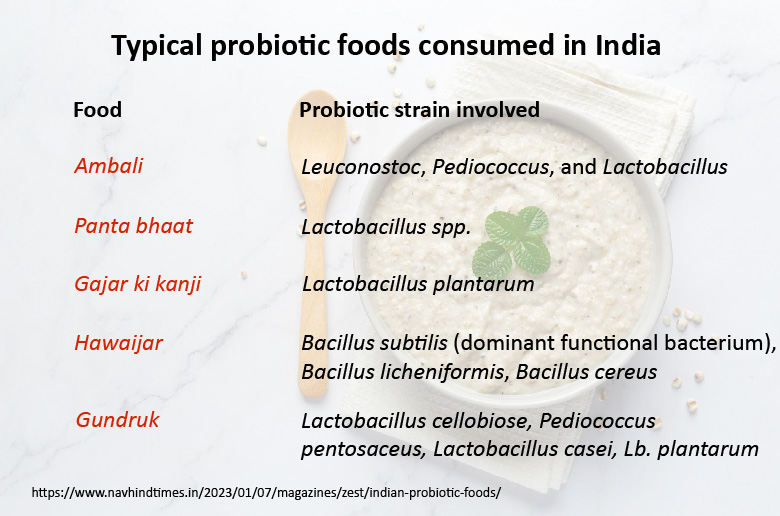Probiotic foods & beverages in India : strains and benefits – 2
Traditional Indian diet contains many fermented foods that contain natural probiotic strains.
2nd in a series on natural probiotics in Indian food and beverages
Continuing on from the last edition of The Digest where probiotic beverages in India were featured, we take a look at prepared foods.
Fermented ragi (ambali) : cooked ragi flour, cooled and mixed with beaten curd or buttermilk, along with jeera, salt & chopped onions. A rich source of starch, protein & B-complex vitamins.
Pokhala bhaat : fermented rice gruel, also known as pazhan kanji or panta bhaat ; fermented rice that has been soaked overnight in a clay vessel. Lactic acid produced by the bacteria present break down the rice, increasing the bioavailability of several minerals.
Gajar ki kanji : a seasonal dish prepared by boiling purple carrots. Carrot pieces are placed in a jar with mustard powder, salt, asafoetida & red chili powder and left to ferment in the sun for 4-5 days. Rich in b-carotene, vitamin C and potassium.
Hawaijar : prepared from soybeans that have soaked for 12-24 hours. The cooked beans are then prepared in an elaborate fashion and wrapped in fig or banana leaves and packed into bamboo baskets. Fermentation takes place from 4-5 days in the sun or buried in paddy straw. Rich in a variety of microorganisms and protein, vitamins, minerals and fiber.
Gundruk : fermented green leafy vegetables (mustard, radish, cauliflower). Prepared as a dry powder after fermentation in jars under anaerobic conditions. Rich in vitamin B, potassium & calcium.
